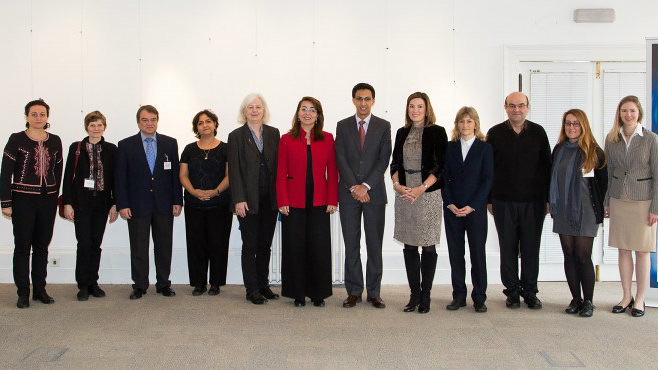At the second Annual Conference for the network, hosted in Bath at the Bath Royal Literary & Scientific Institution, delegates heard from keynote speaker Her Excellency Dr Ghada Waly, Egyptian Minister of Social Solidarity, alongside distinguished speakers from academia, policy-making and NGOs.
Over 100 delegates from 15 countries were in attendance at the event, which also marked the end of an ESRC-funded project exploring the interconnections between religion and the social welfare systems of the MENA region, using three case studies of Lebanon, Iran and Turkey.
The event highlighted the central importance of social policy for advancing social science knowledge in the MENA region, and also for more contemporary current affairs issues linked to the wider political challenges across the region – including the lead up to and fallout of the 2011 Arab Uprisings.
Presentations covered a wide range of social and public policy topics, including how effective social security systems in MENA countries were in responding to labour informality, lack of access to basic health care and the gendered impact of social policies.
Drawing on latest findings, including the new ESRC research project authored by Dr Rana Jawad from our Department of Social & Policy Sciences, with colleagues Ali Saeidi (University of Tehran, Iran), Burcu Yakut-Cakar (Kocaeli University, Turkey) and Daniele Joly (University of Warwick) this considered how research in this area can better assist policy-makers.
The ESRC project is the first to map what social policy provisions are in place across the MENA region in order to better target interventions. Based on a the three country case studies (Lebanon, Turkey and Iran), this highlights the strengths and weaknesses of existing welfare systems and explores policy solutions to some of the long-standing challenges, in particular in respect to the informal economy.
In a candid presentation, keynote speaker H.E. Dr Ghada Waly highlighted how ineffective social policy in Egypt had led to a stark lack of opportunities for its people, and a stagnant jobs market had disproportionately hit women and the poor. For Egypt, she suggested, better social policies were essential if the country was to achieve its economic growth target.
Dr Rana Jawad, IPR MENA Network co-ordinator said: “This year’s MENA Conference was an excellent opportunity for our expanding international network to meet, interact and share learning on these important social policy issues.”
“In just one year since its launch in 2013 the MENA network has grown significantly. As we look to 2015 we will consider how we can keep momentum going to capitalise on the progress we have seen so far.”
If you found this interesting, you might also like:
Professor Paul Gregg discusses negative impact of youth unemployment - November 2014
Dr Sarah White featured in UNA-UK 'Global Development Goals' publication - September 2014
New virtual library for MENA Network - September 2014

